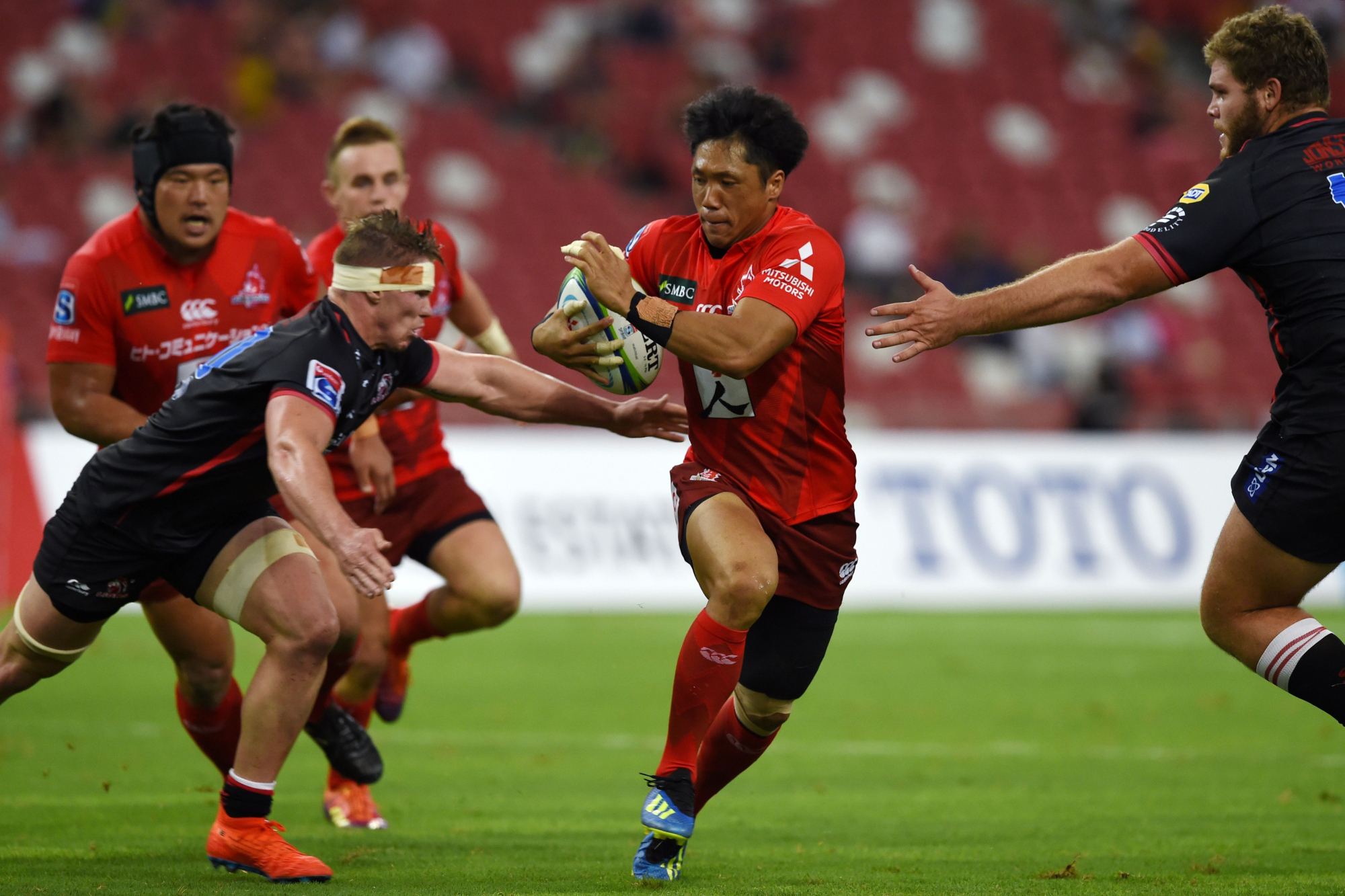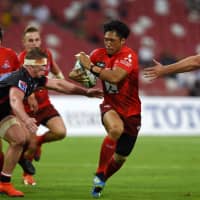Sunwolves CEO Yuji Watase put on a brave face last week despite clocking up air miles in the wake of the announcement his team would be not be part of the Super Rugby competition post 2020.
The 56-year-old flew to Singapore from Tokyo on March 20, returned to Japan a day later to attend a news conference the following day at Prince Chichibu Memorial Rugby Ground before heading back west for last Saturday's game against the Lions at Singapore National Stadium.
But he finally cracked following the game when asked what SANZAAR'S decision would mean to rugby fans in Japan.
"Last season when we beat the Reds at Chichibunomiya, the fans were so happy," he said, choking back the tears. "There was one small boy they showed on the big screen crying. The Sunwolves were real heroes to him. That's what the team gave them, passion. Young boys watched the team and wanted to play for the Sunwolves. Now their dream is broken and I am so sorry."
With the Rugby World Cup, which kicks off in Tokyo in under six months, hopefully leading to many more Japanese interested in the sport, the announcement could not have come at a worse time.
In a country where fans struggle to identify with the top teams — unless they went to a particular university or work for a specific company — the Sunwolves have broken the mold.
This is a team the fans feel part of and the difference in atmosphere between a Top League game and a Sunwolves game in Tokyo is like chalk and cheese, both in terms of noise and demographics.
"We've probably got the best fans in the world," said co-captain Michael Little, a view repeated time and time again by anyone who has worn the Sunwolves jersey.
So it is imperative the Japan Rugby Football Union look at either keeping the team in an alternative overseas-run competition or, failing that, completely restructure the Top League — or whatever new competition they are thinking of introducing — so it is run on a regional rather than corporate basis to allow that passion to spread to more and more teams.
Much has been said about the future of the Sunwolves, with suggestions they could play in a new Super Rugby Asia-Pacific competition including the Pacific Islands, North and South America and Hong Kong or even the fledgling Global Rapid Rugby run out of Western Australia and Hong Kong.
"They have to. Japan needs something between the Top League and international level . . . hopefully, they will move," Panasonic Wild Knights coach Robbie Deans told The West Australian newspaper regarding a possible shift to Global Rapid Rugby.
"The game is very popular (in Japan) and it's growing," he said. "But obviously post-World Cup key decisions will have to be made."
Deans coached a World XV in the opening game of this year's GRR competition last weekend in Perth against the Western Force, a team that knows only too well what the Sunwolves are going through after being booted out of Super Rugby in 2017. And his Wild Knights have long been rumored to be part of the long-term future of the competition, funded by Australian mining billionaire Andrew Forrest.
A JRFU official, however, said a few weeks before the Sunwolves decision was made that the union was not looking at getting involved in the new competition, which features a number of new revolutionary laws that set it apart from rugby played at the highest level.
And that was a view supported by Watase last weekend in Singapore, even though he stressed he was part of the Japan Super Rugby Association and not the JRFU.
"The Sunwolves are about high performance," he said. "The JRFU are still the main stakeholder so we need to discuss aggressively what makes up a high-performance pathway. We need to work out how best to promote the sport and expand the rugby population in Japan."
However, while he is doing that, Watase will also need to persuade players and coaches to play for and coach the Sunwolves next year, despite knowing it will not only be a one-season deal, but that Super Rugby also clashes with the (delayed 2019-20) Top League season.
"I have already been talking to Top League teams and in my personal view things will be OK," he said, though he did add the initial conversations had come before the SANZAAR decision.
But as Deans pointed out, "You have livelihoods at stake. It's tough to get players to commit to an outfit knowing they are dead in the water."
Infighting at the JRFU means there are some who want the team consigned to the history books, but Watase thinks there is a duty to carry on.
"We have a responsibility to expand rugby in Asia — but in pure economic terms, the reality is not that simple."
"We need to work positively with Asia Rugby, the JRFU and SANZAAR." Though he admitted that at this stage "there is no Plan B."




















With your current subscription plan you can comment on stories. However, before writing your first comment, please create a display name in the Profile section of your subscriber account page.